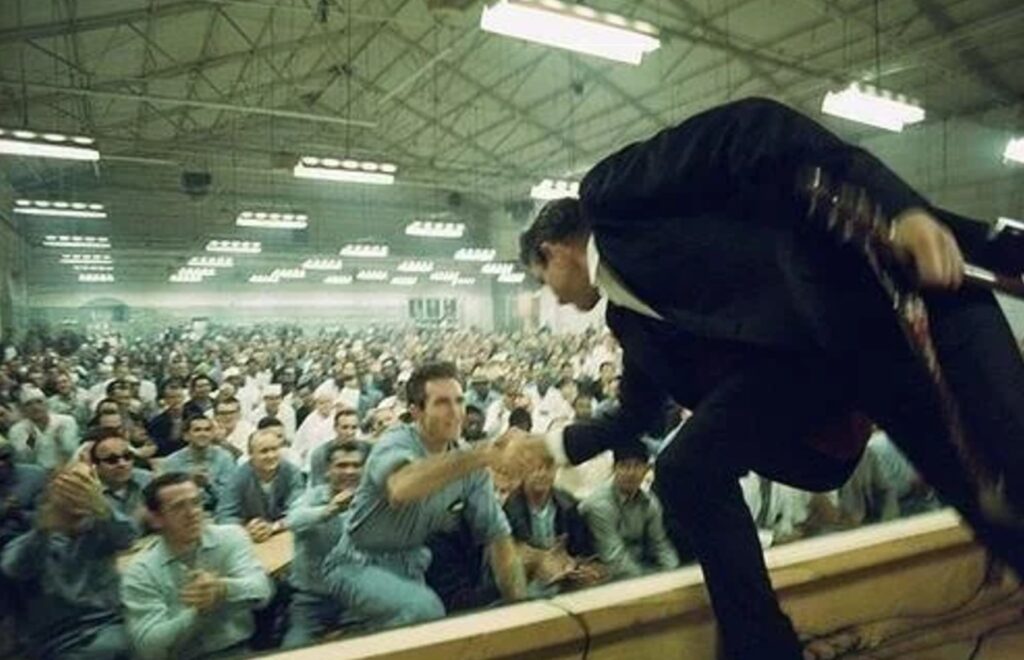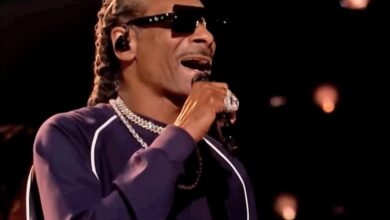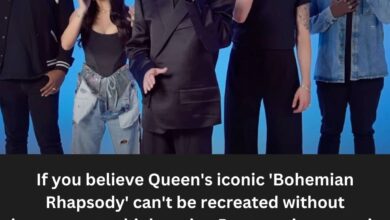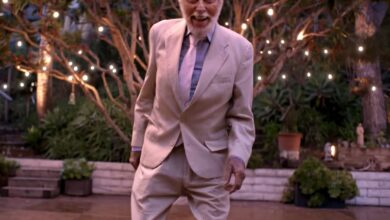What a Legendary Concert – Johnny Cash’s Groundbreaking Show on January 13, 1968
Fifty-eight years ago, on January 13, 1968, Johnny Cash gave his first performance at Folsom State Prison in California, an event that would become a landmark moment in music history. This concert was not merely a significant cultural milestone; it was a heartfelt gesture that bridged the gap between mainstream society and its most marginalized individuals. During a period when discussions about prison reform and inmate advocacy were uncommon, Cash’s decision to perform at Folsom was both audacious and transformative, showcasing his empathy and steadfast dedication to using music as a means of connection.

Cash had long been connected to prison themes, driven by his enduring interest in hardship, redemption, and the struggles of society’s outcasts. His 1955 hit, Folsom Prison Blues, perfectly illustrated these themes, presenting a raw and haunting story of a prisoner yearning for freedom while dealing with guilt. The song’s popularity established Cash as a voice for the oppressed, making it a natural progression for him to bring his music directly to those who inspired it. Folsom State Prison, known for its severe conditions and tough inmates, provided the ideal backdrop for Cash’s authentic and unapologetic storytelling style.
When Cash took the stage on that cold January day in 1968, he offered more than just a repertoire of songs. He delivered a message of dignity and respect to a group often neglected and dehumanized. Many of the inmates, who had spent years without personal recognition, saw a kindred spirit in Cash. His music neither patronized nor preached; it acknowledged their suffering, reflected their struggles, and celebrated their humanity. For Cash, this performance was not about gaining fame or publicity—it was about giving a voice to those who were often silenced.
Although this initial concert was not recorded, its significance was clear. It marked the beginning of a deeper relationship between Cash and the prison system, a connection that would profoundly shape his career. Two years later, on January 13, 1970, Cash returned to Folsom State Prison with a recording team to produce At Folsom Prison, a live album that would revolutionize his career and solidify his legacy. The album captured the genuine energy of the event—the applause, the cheers, and the inmates’ enthusiastic responses to Cash’s performances. It was more than just a concert; it was a shared experience of unity, with the prisoners’ voices blending seamlessly with Cash’s music, transcending the confines of the prison to reach a broader audience.
The release of At Folsom Prison was a crucial turning point for Johnny Cash. It breathed new life into his career, reestablishing him as a bold and relevant figure in American music. The album’s truthful depiction of prison life, combined with Cash’s fearless performance, redefined country music and opened avenues for artists to explore themes of social justice and resilience. Songs like Folsom Prison Blues and I Walk the Line resonated deeply with both inmates and the general public, elevating the performance from mere entertainment to a meaningful act of empathy and understanding.
Cash’s performances at Folsom went beyond the typical artist-audience interaction—they demonstrated the transformative power of music to bridge divides and challenge societal norms. At Folsom Prison is acclaimed as one of the greatest live recordings in music history, reinforcing Cash’s reputation as both an iconic musician and a champion for the marginalized. His visits to Folsom State Prison, beginning in 1968 and culminating in the landmark album, remain pivotal moments in country music history and continue to influence conversations about justice and prison reform.
Cash’s Folsom performances highlighted his ability to connect with people on a profound human level, regardless of their circumstances. These concerts were not just about music; they were acts of solidarity, empathy, and hope. Decades later, they continue to inspire and demonstrate the significant impact that one artist, armed with his guitar and message, can have on the world.





